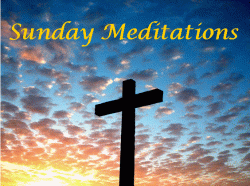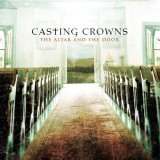In reading through Nine Mark’s e-journal on fundamentalism, I came across an audio lecture by Iain Murray (editor of Banner of Truth) on George Whitefield and Catholicity. Catholicity refers to a spirit of unity among the universal (i.e. Catholic) church, and not in any way to the doctrines of the Roman Catholic Church.
The lecture was very interesting as it deals with George Whitefield’s life and influence. It focused on his ideas of Christian unity across denominational lines. And Murray alleges that this emphasis on Christian catholicity directly resulted in the birth of modern missions and other evangelistic ventures such as Bible societies and publishing houses. Murray is careful to apply Whitefield’s story to today’s Christianity, and warns against both a radical ecumenism and a sectarian disregard for unity.
In his lecture, he quoted from John Calvin on the idea of doctrines being fundamental or not. And as we’ve been arguing the historicity and validity of this idea (that doctrines can be ranked as primary and secondary, etc.), I thought I’d share the full quote, which I found in Calvin’s Institutes of the Christian Religion, Book 4, Chapter 1, section 12.
What is more, some fault may creep into the administration of either doctrine or sacraments, but this ought not to estrange us from communion with the church. For not all the articles of true doctrine are of the same sort. Some are so necessary to know that they should be certain and unquestioned by all men as the proper principles of religion. Such are: God is one; Christ is God and the Son of God; our salvation rests in God’s mercy; and the like. Among the churches there are other articles of doctrine disputed which still do not break the unity of faith. Suppose that one church believes–short of unbridled contention and opinionated stubbornness–that souls upon leaving bodies fly to heaven; while another, not daring to define the place, is convinced nevertheless that they live to the Lord. What churches would disagree on this one point? Here are the apostle’s words: “Let us therefore, as many as are perfect, be of the same mind; and if you be differently minded in anything, God shall reveal this also to you” [Phil. 3:15]. Does this not sufficiently indicate that a difference of opinion over these nonessential matters* should in no wise be the base of schism among Christians? First and foremost, we should agree on all points. But since all men are somewhat beclouded with ignorance, either we must leave no church remaining, or we must condone delusion in those matters which can go unknown without harm to the sum of religion and without loss of salvation. (emphasis added)
Also note the footnote (at the place where the asterisk is in the above quote), where John McNeill notes several proponents of this fundamental doctrine ideal in the seventeenth century.
*What follows is the footnote in my copy of the Institutes (edited by John McNeill [Philadelphia: Westminster Press, 1960] ), emphasis added:
Cf. IV. ii. 1. The distinction of fundamental and nonfundamental articles of belief is woven into Calvin’s thought, though not definitively treated by him. F. Wendel remarks on the importance of this doctrine in Calvin’s championing of church unity, and cites Comm. I Cor. 3:11 (Corpus Reformatorum: Johannis Calvini Opera quae supersunt omnia XLIX. 1354): “The fundamental doctrine, which it is nowise permissible to break, is that we cleave to Christ, for he is the only foundation [unique fondament] of the church.” The doctrines here named are introduced by the word qualia (such as) and are of course not a full enumeration of those which Calvin would hold requisite. The notion of fundamental articles formed the core of various liberal projects of union in the seventeenth century when it was advanced by Georg Calixtus, Pierre Jurieu, Samuel Werenfels, J.A. Turretin, and others. See Rouse and Neill, A History of the Ecumenical Movement, pp. 79 ff., 92 f., 107, 111.
I’ll have more to say on Nine Mark’s e-journal later. For now, you should know that several excellent articles on the question of fundamentalism, separation and unity are brought together in this one resource. I find it very helpful.

